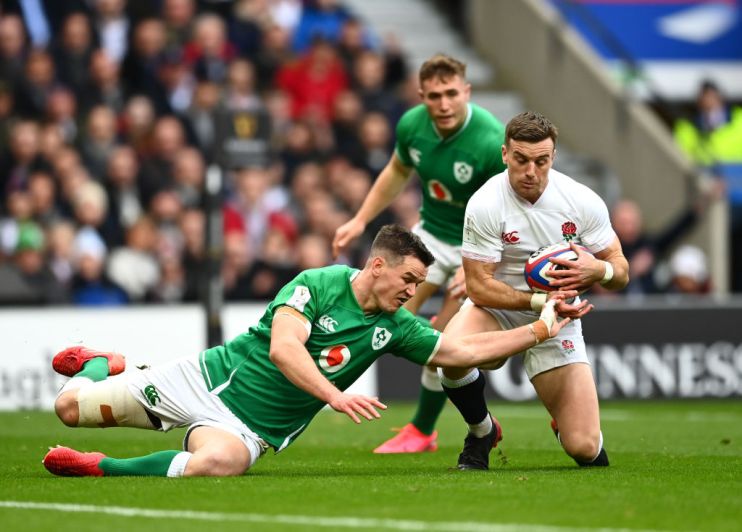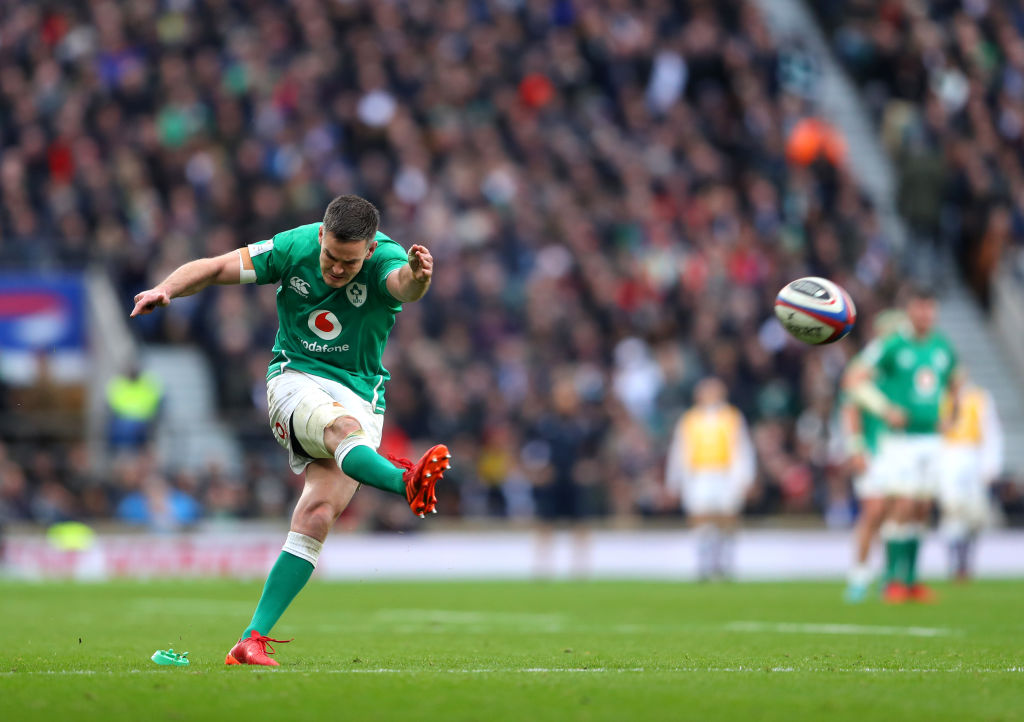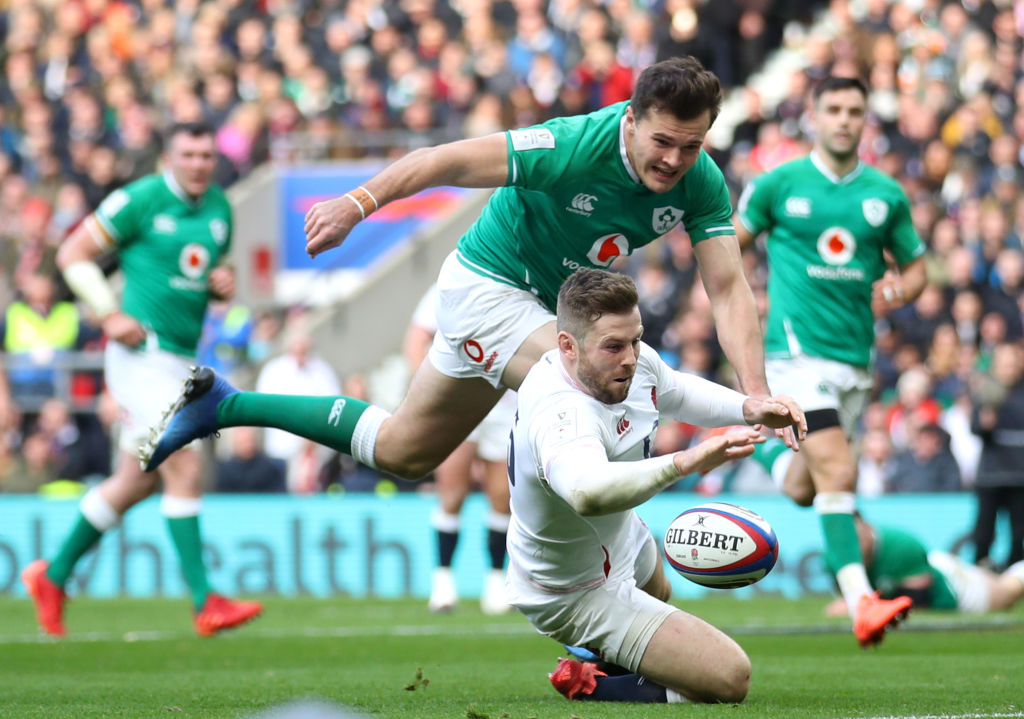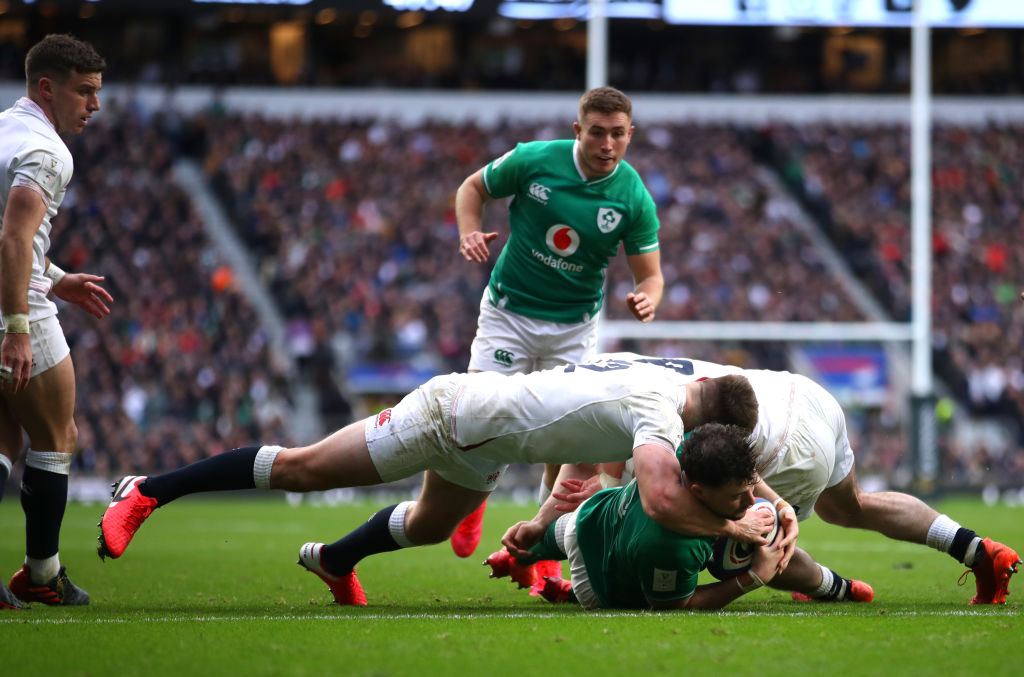England 24-12 Ireland: Johnny Sexton’s struggles help England record confidence-boosting win at Twickenham

The build-up to England’s Six Nations clash against Ireland at Twickenham on Sunday was dominated by one storyline.
England captain Owen Farrell coming up against his father, Ireland head coach Andy, was an understandable focus, given the importance of both figures.
But before England’s 24-12 win was over it was clear that particular aspect had little impact. Instead it was Farrell Jr’s opposite number – the man his dad chose as Ireland captain – whose performance shaped the scoreline.
Johnny Sexton is Ireland’s skipper, fly-half, creative fulcrum and, in theory, their best player.

Former England full-back Mike Brown revealed last week that a life-sized cardboard cut-out of Sexton is placed in the team dining room in the lead up to an Ireland game, to hammer home the importance of shackling the opposition’s main man.
“Everything Ireland do well goes through him so there would always be a huge amount of focus on how to limit his influence and suffocate him,” Brown wrote in the Daily Mail.
In the end the man himself did plenty to limit his own effectiveness, putting in an error-strewn performance which saw Ireland’s Triple Crown and Grand Slam hopes evaporate inside the first half.
Strength to weakness
For so long Ireland’s strength, which carried them to the world No1 ranking, was the No9-No10 axis between Conor Murray and Sexton. The understanding between the world class duo meant the forwards and backs were on the same wavelength.
Murray would provide quick, incisive ball from the ruck, while Sexton’s intelligence would conduct traffic and his unerring boot would gain territory and release the pressure valve when needed.
On Sunday that was not the case, as Sexton in particular showed signs that, at 34, his best days could be behind him and all the responsibility might be weighing too heavily.
Hitting the front
It took England just eight minutes to hit the front at Twickenham. Recalled scrum-half Ben Youngs sent a speculative grubber into the in-goal area for Farrell and George Ford to chase.
The only reason Ford managed to touch down for the opening try was a glaring mistake by Sexton who retreated, juggled and finally dropped the bouncing ball.
Having pinned Ireland back with a combination of powerful ball-carrying, turnovers and poor Ireland decision-making, England repeated the trick to establish a 14-0 lead.

Ford chipped, Jacob Stockdale floundered and Elliot Daly applied the telling touch just in front of the dead-ball line.
England’s relentless line speed and domination at the set piece gave them almost total control in the first 40 minutes and a Farrell penalty gave them a 17-0 lead at the break.
Improvement possible
But for all their territorial and physical dominance – England completed 32 dominant tackles to Ireland’s eight – the hosts’ comfortable lead came courtesy of two defensive errors. They had clearly identified a weakness and moved twice to exploit it, yet their tries were far from guaranteed.
Had Sexton not horribly shanked a penalty and a conversion then Ireland’s second-half improvement could have shredded the nerves of the Twickenham crowd.

Robbie Henshaw drove himself over the try line from close range to get them on the board in the 50th minute and substitute Andrew Porter did the same in the closing stages to make the score line respectable after Luke Cowan-Dickie scored from a rolling maul, but Ireland had already paid the price for a lacklustre start.
While he was pleased with the result – and to not be fielding questions about Tom Curry and Jonathan Joseph playing out of position – Eddie Jones was disappointed with the second half display.
But with a confidence-boosting victory behind them and two weeks to go until Wales arrive at Twickenham, Jones has plenty of time in which to reflect and plot their downfall.